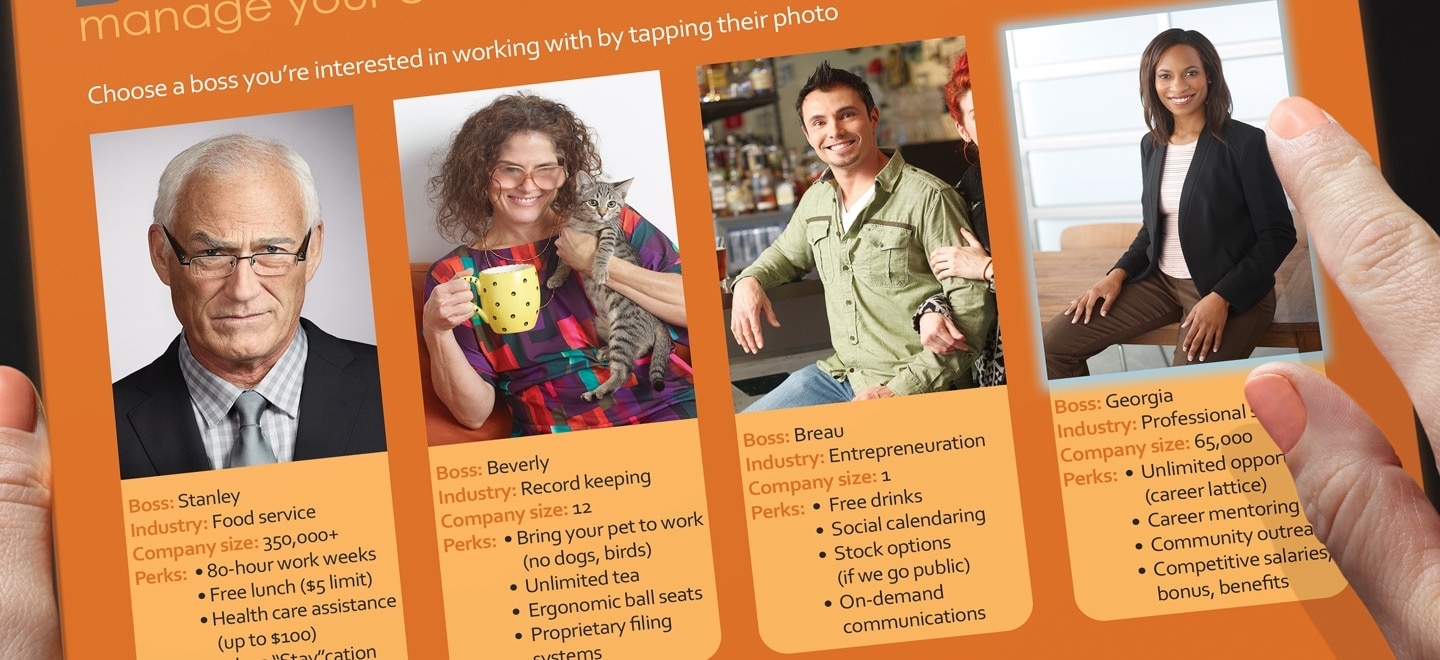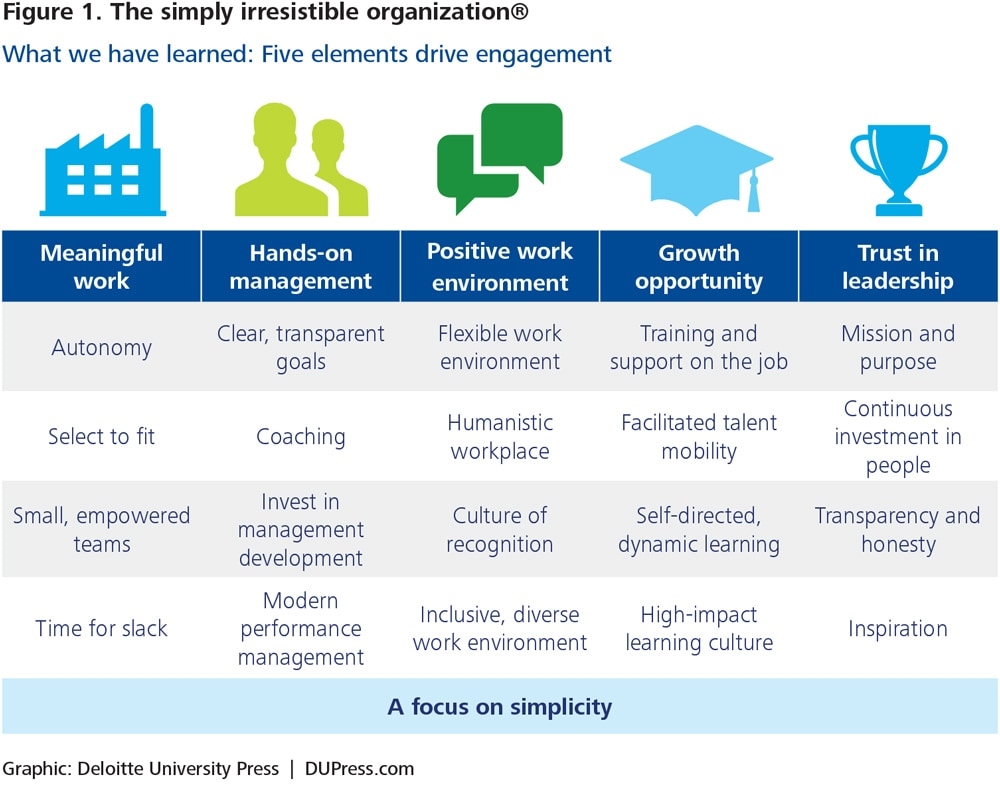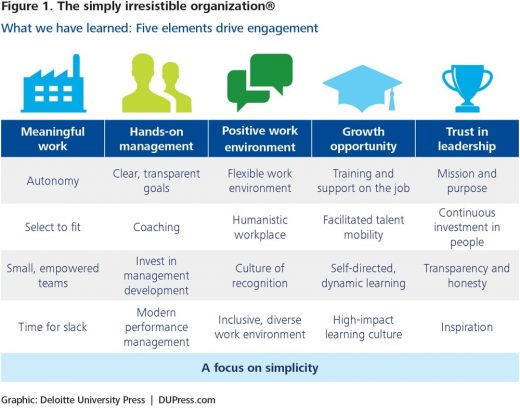3 Powerful Habits to Future-Proof Your Workplace
Over the past year and a half, the business world has experienced a sea change. As companies continue to navigate pandemic-induced shifts in work culture, new digital advancements, and evolving consumer behaviors, leaders must adopt flexible approaches compatible with the new normal, or risk falling into stagnation and irrelevance.

The latest data from studies by Gallup, PWC, and Deloitte shows that in the workplace, our new normal revolves around self-actualization: Today’s workers want more ownership over their time, projects that align with their values, regular feedback from their supervisors, opportunities to grow their skills, and safe spaces to be themselves and meet friends. As these priorities swiftly remake the culture of work, they’re also pointing toward the engagement factors that will allow leaders to effectively promote organizational health moving forward.

The data is clear: to become future-ready, leaders must cultivate and model a flexible, curious, responsive, honest mindset. What’s far less clear to most of us is how to materially change our values and practices for the greater good. That’s why I’ve drawn on my long experience as an entrepreneur to share a few of the practices that have worked for me. With dedication, the habits of mind and team-building measures below will help you continue to innovate, inspire and keep pace with your stakeholders, even as your business continues to grow and the pace of change accelerates.
Empower your team by rethinking traditional workday controls
Millennials and Zoomers are all about finding the optimal work-life balance. In fact, 83% of Millennials cite work-life balance as the #1 factor they consider when evaluating a job prospect, and over 70% have left or considered leaving a job that didn’t offer enough flexibility.

Translation: asking for a hall pass whenever your employees want to go jogging or visit the doctor doesn’t make anyone happier or more productive. And with the rise of hybrid and remote work models over the last 18 months, enforcing mandatory at-work hours no longer makes sense for many roles.
Instead of trying to own your team’s time and agency, consider removing traditional workday controls like enforced work hours and vacation limits by resetting performance expectations around deliverables and project milestones.
Creating a work culture rooted in trust and respect will make you a more competitive employer, and keep your team happier. And that’s a big deal for your bottom line: According to Gallup, happier, “engaged” employees are 17% more productive than unhappy, unengaged employees, and companies with an engaged workforce are 21% more profitable than their competitors.
Model a culture of maximum ownership and 2-way feedback
If you run a business, mistakes are inevitable. But if you’ve established a workplace culture where mistakes aren’t acceptable, you’ll implicitly discourage your colleagues from owning, correcting, and learning from errors when they arise.
A team that isn’t empowered to examine its mistakes will simply keep making them, compounding any issues that may be lurking in your processes. Over time, your culture will develop to protect those who effectively deflect responsibility, and erode the good habits of those who enter your organization with a growth mindset.
The cure for this issue is to establish avenues for candid, consistent two-way feedback. Companies like Netflix have built tremendous talent density by developing cultures rooted in constant, open feedback, and data from SAP SuccessFactors shows that millennials overwhelmingly prefer to work in environments where they receive frequent feedback and pathways to grow.
On the basis of these findings, one effective way to improve business outcomes and employee engagement is to reimagine performance reviews as future-facing coaching opportunities and to increase their frequency from once annually to once quarterly.
Exactly how impactful can it be to programmatically provide more frequent, growth-oriented feedback? In 2020, Deloitte completely replaced traditional performance reviews with quarterly check-ins after an exhaustive study revealed that, “companies that revisit goals quarterly have threefold greater improvement in performance and retention than those that revisit goals yearly.”
Leverage the “greater why” to improve organizational engagement
We’ve already covered how much more productive engaged, happy teams are than disengaged, unhappy ones. But facilitating team engagement doesn’t end with providing regular, growth-oriented feedback. It also means helping your teammates to connect to their “greater why” through their work.
Your “greater why” is what brings your day-to-day work into alignment with your core values. It’s the reason you do what you do beyond the paycheck, which makes it a potential source of tremendous passion and fulfillment.
Helping your teammates access their greater why means finding ways to ensure that the impact of their efforts is closely aligned with their values. And that generally entails providing opportunities for them to use their work to contribute to the communities or issues they care about. In fact, according to Deloitte, more than 70% of millennials expect their employers to focus on ameliorating societal or mission-driven problems.
To that end, one of the most powerful ways to create more alignment between your day-to-day and your employees’ values is to invite your colleagues to help shape your Corporate Social Responsibility program. After all, your employees create a tangible link between your business and your community–they work for you, but they live out there. And that often leads them to develop valuable insights as to how your business might better contribute to the daily life of your town, city, or core constituency.
Harnessing this knowledge will allow you to surface the issues your team cares about most, and address them in meaningful, collaborative ways that have a lasting impact on employee engagement.
Final Thoughts
As leaders, we are the stewards of our organizations, employees, and brands. In this period of unprecedented change, we must proactively adapt our customary approaches to this stewardship in order to promote organizational health and longevity. Building a flexible, future-ready leadership mindset will give you the blueprint for meeting new challenges as they arise, and put your teammates in a position to achieve both long-term success and greater fulfillment at work.
Business & Finance Articles on Business 2 Community
(22)


